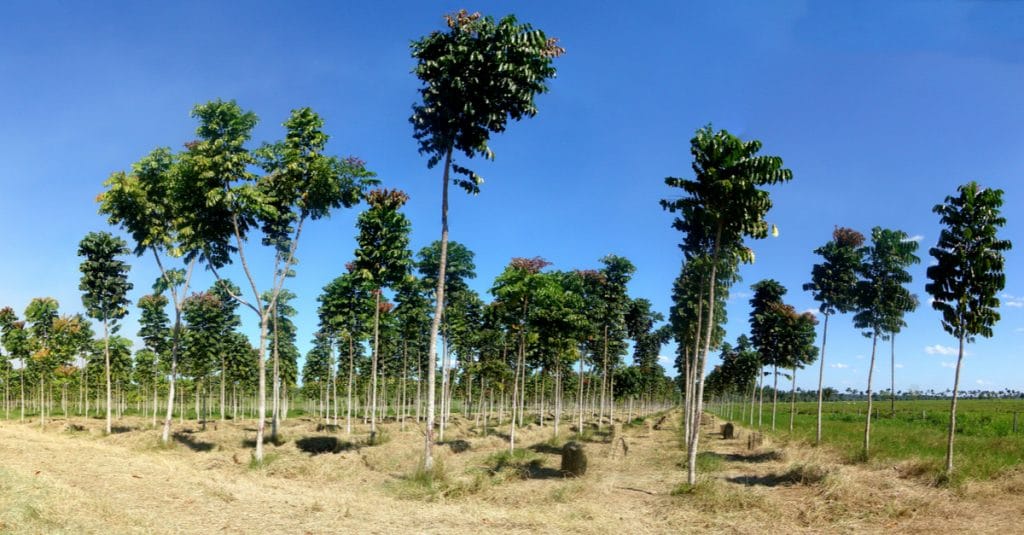Nigeria is getting an ecological boost after many questions about the critical level of its forest reserves. The West African country will soon experience a vast reforestation plan. “… We will mobilise Nigerian youth to plant 25 million trees to increase our carbon sink…” Nigerian President Muhammadu Buhari announced during his speech at the UN Climate Summit in New York on the 23rd of September 2019.
This announcement by the Nigerian head of state may allay the concerns of environmental activists about the level of forest cover in the country. “Nigeria is no longer green, it is now brown,” Mutari Aminu-Kano, Executive Director of the Nigerian Conservation Foundation (NFC), said at a press conference in Abuja on January 17, 2019. According to him, Nigeria loses about 400,000 hectares of its land each year due to deforestation. “Nigeria currently has only 4% forest cover, the rest is gone,” he added.
Nigeria wants to reduce its carbon emissions by 2030
Nigeria’s climate actions will not be limited to reforestation. The Nigerian president reported on other projects during his statement at the UN forum. “In the energy sector, Nigeria is currently diversifying its energy sources to make the transition from an oil-based energy system to energies based on water, sun, wind, biomass and nuclear power. Nigeria is particularly committed to its target of 30% clean or renewable energy by 2030. This is with a view to reducing our CO2 emissions by 179 million tonnes per year by 2030.”
The 2019 edition of the UN Climate Action Summit was designed to be concrete. As requested by United Nations Secretary General António Guterres, the Heads of State called upon to speak mainly presented concrete actions and projects to reduce global warming. An exercise in which African heads of state (Chad, Nigeria, Djibouti, Sierra Leone) were unanimous on one point: Africa, which is suffering the full brunt of the disastrous effects of climate change, will not be able to get out of it without help. The richest countries must keep the promises of the Paris Agreement, by financing the climate efforts of African countries.
Boris Ngounou
